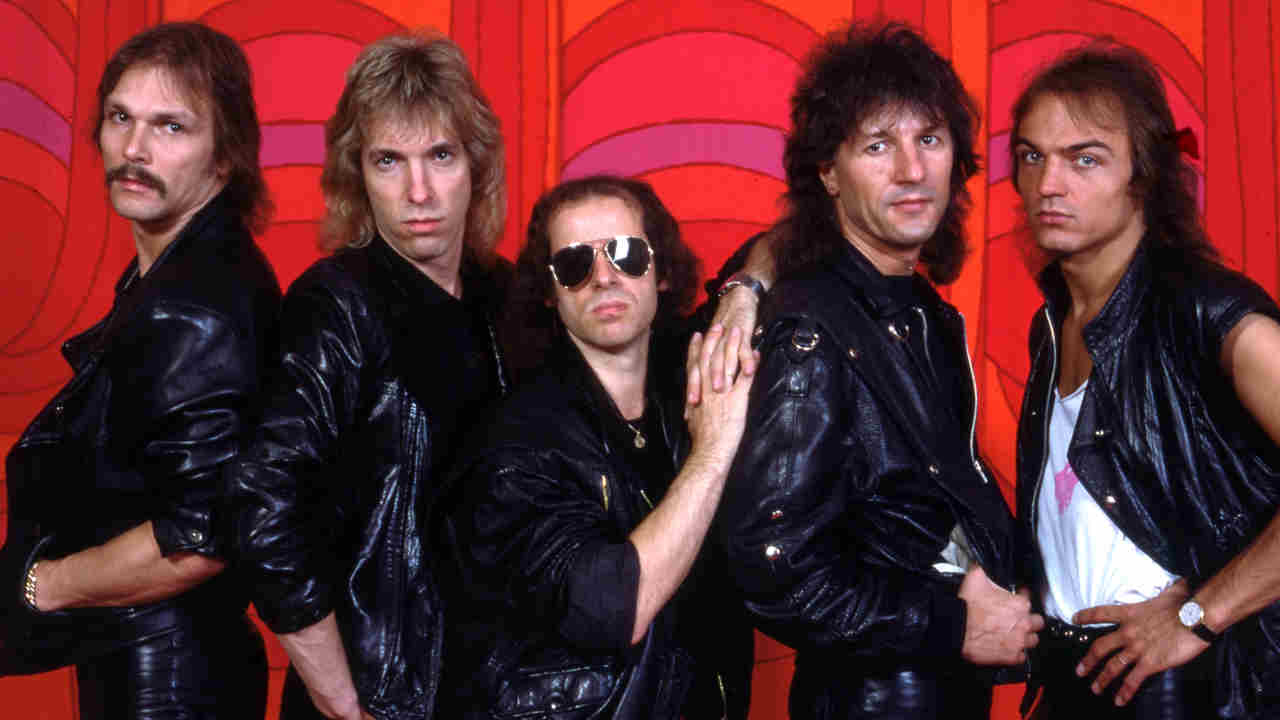Willie Dixon: the life and legacy of the blues' greatest songwriter
Chess Records songwriter Willie Dixon was the man behind some of the most beloved and influential songs in history, inspiring a whole generation of musicians
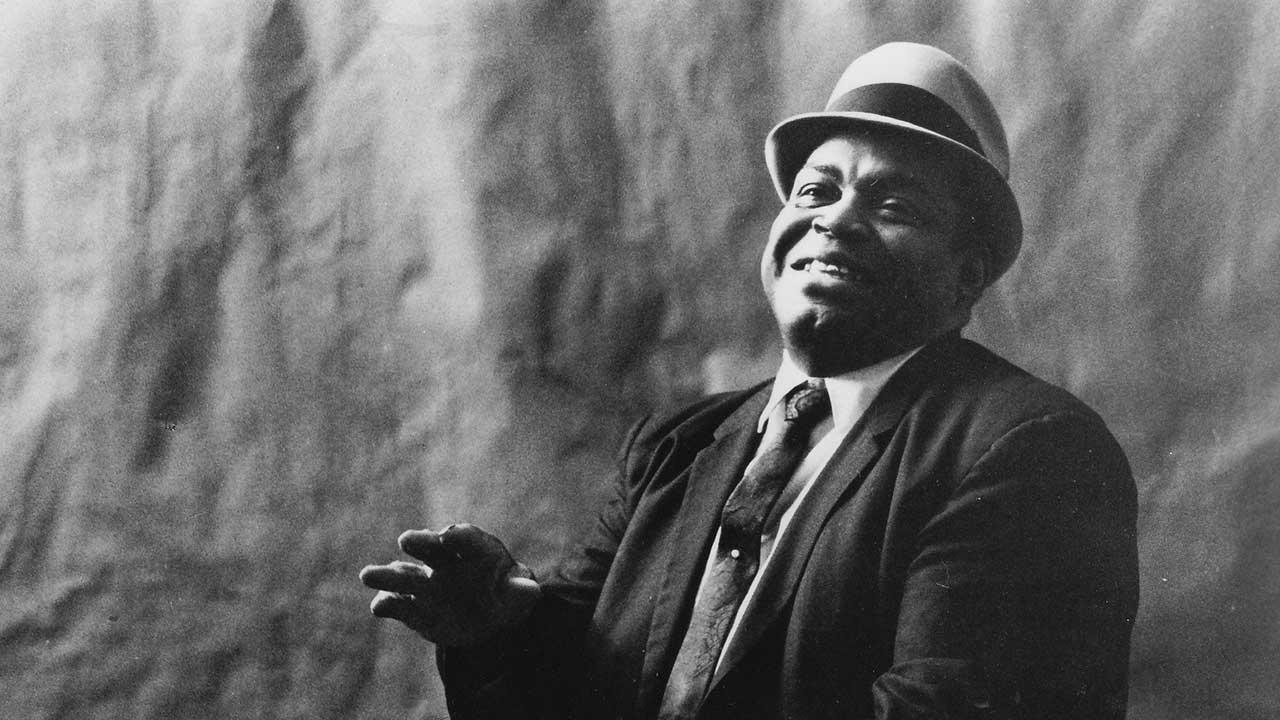
The Rolling Stones on Ready Steady Go!, November 20, 1964. As perfect a snapshot of swinging London as you could hope to find. Briefly interviewing members of the band, the TV show’s presenter Keith Fordyce (then in his mid-30s) looks and sounds like a supply teacher trying to take the register in a tough comprehensive.
While Stones guitarist and self-appointed leader Brian Jones remains polite throughout his awkward stab at friendly chit chat with Fordyce, frontman Mick Jagger is all Artful Dodger, grinning guiltily like he’s chalked a cock on the presenter’s back and can’t wait until the game is up. As a slice of British culture it has the lot: the establishment, the kids, the obvious generation gap.
With that, it’s down to business and the band start miming to their ninth single Little Red Rooster. In what’s since become an iconic clip, Jagger stalks the stage alternately mouthing lyrics and blowing his harp while Jones minces a sideways glance into the camera as he hits the song’s slide lick on his Vox MK III ‘teardrop’ guitar.
Even if they’d been, you know, hip to the blues, the teen girls screaming their lungs raw in the audience couldn’t have cared less that the song was originally called The Red Rooster – or that it had been recorded first by blues behemoth Howlin’ Wolf and released on Chicago’s Chess Records in 1961. Distracted by Jagger’s tight trousers, it would likely have made little difference to the hormonal front row that the song hadn’t been written by the five louts from Dartford holding court on stage but by a portly 6ft 5in, 250lb black man then hurtling towards his 50s.
Bassist, producer and the blues’ most prolific songwriter, Willie Dixon was well accustomed to his songs achieving a higher profile than him. For years, he’d been spinning gold for Chicago blues artists like Muddy Waters, Howlin’ Wolf, Bo Diddley, Little Walter and others. He’d also played bass on many of the Chicago blues sides that we now cherish – not to mention game-changing rock’n’roll 45s (see First Bass). Now, in an electric blues-obsessed 60s Britain, his tunes would fatten up the set lists of just about every R&B band playing to mods in the capital and the provinces.
Of all the Willie Dixon songs that infiltrated British R&B in the early 60s, The Red Rooster remains the most important. The retitled Stones ’64 cut represents the only time a blues song has topped the singles chart in the UK. That was Brian Jones’ ultimate dream. Get British kids to buy blues. It was a gamble that paid off. In fact, Stones manager Andrew Loog Oldham regarded the single as commercial suicide, unbecoming of a band that was now challenging the chart supremacy of The Beatles.
You might suppose that the Stones and other English groups lifted Willie Dixon songs from imported Muddy Waters, Howlin’ Wolf and Little Walter 45s. That did go on, but as Dixon revealed in his essential 1990 biography I Am The Blues (written with Don Snowden) he made tapes of his music to help kids like Brian, Mick and Keith in their blues studies: “Kids would come and say they liked our music and want to sing our music. Sometimes I’d write it out for ’em. Sometimes I’d put it on a tape. That’s how The Rolling Stones and The Yardbirds got their songs.”
Sign up below to get the latest from Classic Rock, plus exclusive special offers, direct to your inbox!
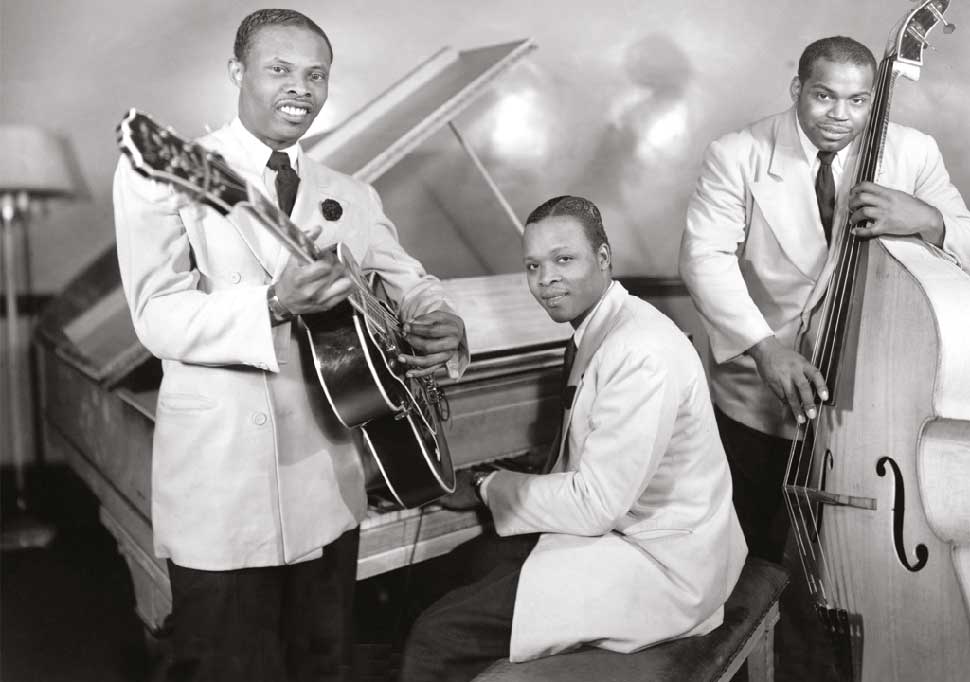
Brian, Mick and Keith of the Stones first encountered Willie Dixon when they attended the first American Folk Blues Festival in 1962. Dixon was on a bill that also included Howlin’ Wolf and Sonny Boy Williamson II.
Early Stones promoter Giorgio Gomelsky recalled his charges – and other young blues junkies – meeting their idols when they passed through his Crawdaddy Club in London: “There was Howlin’ Wolf, Sonny Boy and Willie Dixon, the three of them sitting on this sofa… Willie was just singing and tapping on the back of the chair and Sonny Boy would play the harmonica and they would do new songs. To a degree, that’s why people knew those songs and recorded them later. I remember 300 Pounds Of Joy, Little Red Rooster, You Shook Me were all songs Willie passed on at that time. Jimmy Page came often, The Yardbirds, Brian Jones.”
While the kids were blown away by the magnetic presence of their blues idols – and the fact they were in their towns – men like Willie Dixon, Muddy Waters, Wolf, Sonny Boy Williamson II and John Lee Hooker were taken aback by the warm reception they received from white audiences in the UK. These were people who had experienced every type of twisted prejudice back in the United States, the south in particular, and witnessed their careers rise then ebb more times than they cared to remember.
Like McKinley “Muddy Waters” Morganfield and Chester “Howlin’ Wolf” Burnett, William James “Willie” Dixon hailed from America’s deep south. He was born into an atmosphere of poverty, racism and segregation in the town of Vicksburg, Mississippi, on July 1, 1915. Vicksburg was a hotbed of white supremacy. Groups like the Ku Klux Klan and the Red Shirts intimidated the local community, while local government initiated schemes to suppress black votes. Lynching was as horrifically common as it was in other parts of the south.
The violent atmosphere made the south fertile soil for the blues, and legends were cast when Charley Patton, Memphis Minnie, Robert Johnson and others revealed their hopes and fears in song. The hardships faced by young black people also triggered a migration to northern cities like Chicago, Detroit and New York, where opportunities for work were offered by the motor and construction industries.
In 1936, Dixon left Mississippi for Chicago and took up boxing, winning the Illinois State Golden Gloves Heavyweight Championship (Novice Division) in 1937. Flushed with success he turned professional and was briefly engaged as legend Joe Louis’ sparring partner. After four fights, Dixon left boxing after a dispute with his manager, believing he’d been cheated out of money. This feeling of being ripped off was one Dixon would experience many times in his life.
During his boxing training, Dixon had met blues pianist and guitarist Leonard “Baby Doo” Caston who he would sing harmonies with. It soon became obvious that Dixon was an even better musician than a fighter: his mother Daisy was said to rhyme words when she spoke, a habit which the future songwriter picked up. Dixon himself developed an interest in music, discovering blues in his early teens, singing in local groups in Vicksburg and writing songs. His friend Caston encouraged him to pursue a career in music, even fashioning him his first bass from a tin can and a single string.
By 1939, Dixon was on a roll, founding The Five Breezes, a blues and jazz-fuelled group with Caston and three other cats: Joe Bell, Gene Gilmore and Willie Hawthorne. He was becoming an accomplished bassist but his musical career hit the wall when the US entered World War II. Dixon resisted the draft as a conscientious objector and was sent to prison for 10 months. After the war, and his release from jail, he assembled a new group named the Four Jumps Of Jive with his old friend with Caston before the two men moved on to form The Big Three Trio, who would record for Columbia Records.
By 1950, Dixon had made the most important move of his career, signing up with Chess Records in Chicago. It was here that he would rub shoulders with some of the greatest blues talent that ever cut a 45: Muddy Waters, Howlin’ Wolf, Chuck Berry, Etta James, John Lee Hooker, Little Walter, Ike Turner, Koko Taylor, Otis Rush, Memphis Minnie and countless more.
A year after joining the label Dixon was its talent scout (with help from Ike Turner, who was trawling the south), producer, session musician and staff songwriter. He wrote over 500 songs in the end. He penned Back Door Man, Spoonful, Wang Dang Doodle, I Ain’t Superstitious and not forgetting The Red Rooster for Howlin’ Wolf.
Muddy Waters was presented with I Just Want To Make Love To You, I’m Ready, You Shook Me, You Need Love and the song that would become his calling card, I’m Your Hoochie Coochie Man aka plain old Hoochie Coochie Man.
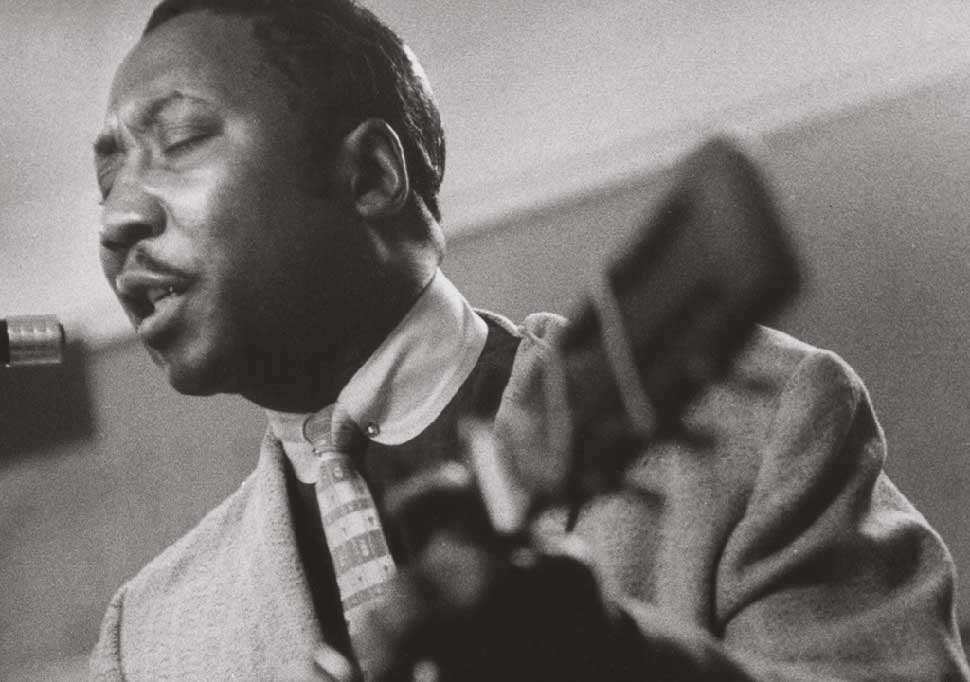
Getting Muddy Waters to take the song on was a lot tougher than Dixon had imagined though. He recalled the circumstances leading up to Muddy accepting the song in I Am The Blues: “I had told Leonard Chess I had quite a few songs but he never wanted too many of them at first. A couple of years after I had started working there, I told him about this particular song, Hoochie Coochie Man.
“‘Man, Muddy can do this number,’ I said.
“‘Well, if Muddy likes it, give it to him,’ he said, and told me where Muddy was working. Muddy and I had talked about the song on a number of occasions. I had sung Hoochie Coochie Man out there where we used to go out and meet him and play on the South Side when I had The Big Three Trio.
“I went over there to the Club Zanzibar at 14th Street and Ashland. At intermission, I had Muddy come off the stage and I was telling him, ‘Man, this song is a natural for you.’
“‘Well, it’ll take me a little while to learn it,’ Muddy said.
“‘No, this is right down your alley. I got an idea for a riff that anybody can play.’
“You know how it is,” he explained. “A lot of guys feel like if you made a song complicated, it would do more. I always tried to explain that the simpler a thing is, the easier it can get across with the public.
“He [Muddy] and I talked about it and I said, ‘Get your guitar.’ We went and stood right in front of the bathroom by the door. People were walking by us all the time and I said, ‘Now, here’s your riff: Da-da-da-da-da.’”
Waters was worried that the song was too simple declaring, “Oh Dixon, ain’t nothing to that.” He wasn’t impressed, yet, but he had just been introduced to his signature song, a blues standard that would also cement Dixon’s value as a songwriter.
Waters first cut Hoochie Coochie Man on January 7, 1954 with himself on electric guitar and vocals, Jimmy Rogers on second guitar, harp legend Little Walter, drummer Elgin Evans and Otis Spann on piano. Dixon plays upright bass on his first session with Muddy.
The song had legs a-plenty. Waters recorded it again for his Marmite ’68 record Electric Mud, then cut an acoustic version in 1972. In 1977, he recorded a sizzling take for his Grammy Award-winning comeback album I’m Ready, produced by friend and disciple Johnny Winter. This last version is the one that most people know.
As Dixon recalls of the song’s birth, “We fooled around with Hoochie Coochie Man there in that washroom for 15 or 20 minutes. Muddy said, ‘I’m going to do this song first so I don’t forget it’. He went right up onstage that first night and taught the band the little riff I showed him. He did it first shot and, sure enough, the people went wild over it. He was doing that song until the day he died.”
Dixon was on fire at Chess, penning killers like My Babe for Little Walter. The quality of his work was such that the label’s artists began squabbling over his songs, hoping to bag the pick of the litter for themselves. No more so than the label’s two biggest stars.
“That’s just like Wolf and Muddy,” Dixon said. “Every song I’d give to Wolf he’d say, ‘Man, you’re giving Muddy the best songs.’ The songs I’d give to Muddy he’d say, ‘Man, you’re giving Wolf the best songs.’ A lot of times you have to use backwards psychology on these guys. I’d say this is a song for Muddy if I wanted Wolf to do it. He would be glad to get in on it by him thinking it was somebody else’s, especially Muddy’s. They seemed to have had a little thing going on between them so I used that backwards psychology.”
While there’s every chance Muddy could have made it work, Dixon made the right call when he set the Wolf on the rumbling classic Spoonful. The record, cut in 1960, opens with some spine tingling guitar from Hubert Sumlin. The line-up is completed by Freddie Robinson on second guitar, Otis Spann on piano, Fred Below on drums and Willie Dixon on double bass.
The song would go on to shape the emerging British hard rock era when it was cut by Cream – Eric Clapton, Jack Bruce and Ginger Baker, natch – on their debut album Fresh Cream in 1966. Dixon’s composition allowed Clapton and company to explore new sonic territory without completely alienating themselves from blues. They would also stretch the song to almost 20 minutes when they played it live. Playing to a young ‘turned on’ crowd caused some listeners to misinterpret the song’s meaning however, making the leap from the origin theme of love to sex and hard drugs.
“The idea of Spoonful was that it doesn’t take a large quantity of something to be good,” commented Dixon in I Am The Blues. “If you have a little money when you need it, you’re right there in the right spot, that’ll buy you a whole lot. If a doctor gives you less than a spoonful of some kind of medicine that can kill you, he can give you less than a spoonful of another that can make you well.
"But after you write these songs, people that have bad minds, their minds will tell them what they want to believe. If it’s blues and they’ve been trying to degrade the blues all the time, I don’t care what title you come up with, they’ll say it’s a bad title. I remember a time years ago that if I said sex, my mama would beat the hell out of me. People who think Spoonful was about heroin are mostly people with heroin ideas.”
If Dixon was irked by the crossed lines of Spoonful, the potential for misinterpretation of his 1961 co-write with Wolf, Back Door Man, was just as great. The song, the b-side of Wolf’s Wang Dang Doodle features that line, ‘the men don’t know but the little girls understand’. It all came across as pretty tame back in the early 60s. A back door man is a ne’er do well who creeps around and, well, entertains the wives of other men while trying to avoid detection. In that context the song could easily have been written about Dixon’s own father, who apparently was no stranger to a creaking back door himself.
In the hands of Jim Morrison of The Doors – who covered the song on their eponymous ’67 debut album – the inherent lasciviousness of the lyrical content is ramped up a good few notches.
“I first heard Back Door Man on an album that John Hammond Jr made [1964’s Big City Blues],” Doors guitarist Robbie Krieger tells The Blues. “In my memory, I was still a kid, a teenager certainly. I liked the song but I also liked the whole album. To be honest, I didn’t know who John Hammond Jr was, or even who his dad [celebrated blues producer John Hammond] was. But I saw this really cool motorcycle on the cover of the LP, and that hooked me in. When I played the album, I had never heard a white guy trying to sound black like that before – and not only on Back Door Man but also on all of the songs.”/o:p
Big City Blues (available as a reissue on Ace Records) features three more Willie Dixon-penned tracks: I’m Ready, I Live The Life I Love and My Babe.
“I played the album to the rest of The Doors and they loved it. But, truthfully, I didn’t even know that Back Door Man was a Willie Dixon song. It probably had his name on the album cover somewhere. But we never bothered to look, and yeah, there was no internet in those days, so it was harder to find out about where some of these blues songs came from.”
As it happened, Doors organist Ray Manzarek came from Chicago and knew the Howlin’ Wolf version of Back Door Man. “So, we listened to that one as well,” Krieger continues. “We liked it. But we based our version on the John Hammond Jr version. Back Door Man was one of the earliest songs we started doing as The Doors. We didn’t have enough originals at that point.
"So we did Back Door Man, [Them’s] Gloria, [Big Joe Williams and John Lee Hooker’s] Crawling King Snake and other blues. We made the song our own, by playing it night after night at [Los Angeles] clubs like the London Fog and the Whisky A Go Go. That’s how we ended up creating our own individual sound. I pity bands these days that go straight from the computer to the recording studio and don’t play live, because that’s how all of those Doors songs came together.”
According to Krieger, Back Door Man was an essential building block in the performance style of frontman Jim Morrison, aka The Lizard King and Mr Mojo Risin’.
“That’s where he got his early training – by singing Back Door Man in all these little clubs,” offers Krieger. “Jim wasn’t enough of a good musician to copy Willie Dixon or John Hammond Jr or anyone – thank God. In fact, none of us were. But that helped. If you’re too good a musician you tend to copy what other people do exactly, and you don’t get your own thing going. So that worked in our favour.”
When it came to choosing tracks for the band’s debut, Willie Dixon’s classic track was never in doubt. “The way I remember is that we all wanted Back Door Man on the first Doors album. It was a fun song to play and there wouldn’t have been any reason to leave it off, other than because of the fact that we didn’t write it. I look back on the recording session [at LA’s Sunset Sound in summer 1966] fondly, but it was rushed.
"The whole album was done in something like six days – which is crazy when you look back at it now. But we’d been playing some of those songs for a year and a half before we recorded them. When you play a song over and over again in the clubs, you get to know it inside out, you get to know how people respond to it and you make it your own. I don’t think that many of our fans knew that it was a Willie Dixon song, or what a back door man was! By the time we recorded it in the studio, it was ours, and it was just a case of turn the tape on and go.
“Years later, I discovered that Willie Dixon had heard our version and said he liked it. At least we were one of the rock bands that gave him a credit. He did okay, unlike some of the other bluesmen that got ripped off. In fact, I think The Doors’ version of Back Door Man was one of Willie’s better paydays. He got some good coin for that one.”
Yeah, blues artists were used to being ripped off. That’s why so many touring musicians carried guns back in the day. While the Stones made a point of giving credit where it was due, not everyone was quite as conscientious. You can’t talk about the life of Willie Dixon without picking at the whole Led Zeppelin lawsuit scab.
In the mid-80s Dixon went to get paid but the roots of the litigation dated back to the 60s. In 1962, Muddy Waters recorded Dixon’s You Need Love which was then covered in 1966 by British mods the Small Faces as You Need Loving on their eponymous debut album on Decca. When Led Zeppelin cut Whole Lotta Love, singer Robert Plant lifted some lyrics from the Willie Dixon song and some of the phrasing from the Small Faces cut. Similarities with You Need Love led to a lawsuit against Led Zeppelin in 1985 which was settled out of court in favour of Dixon.
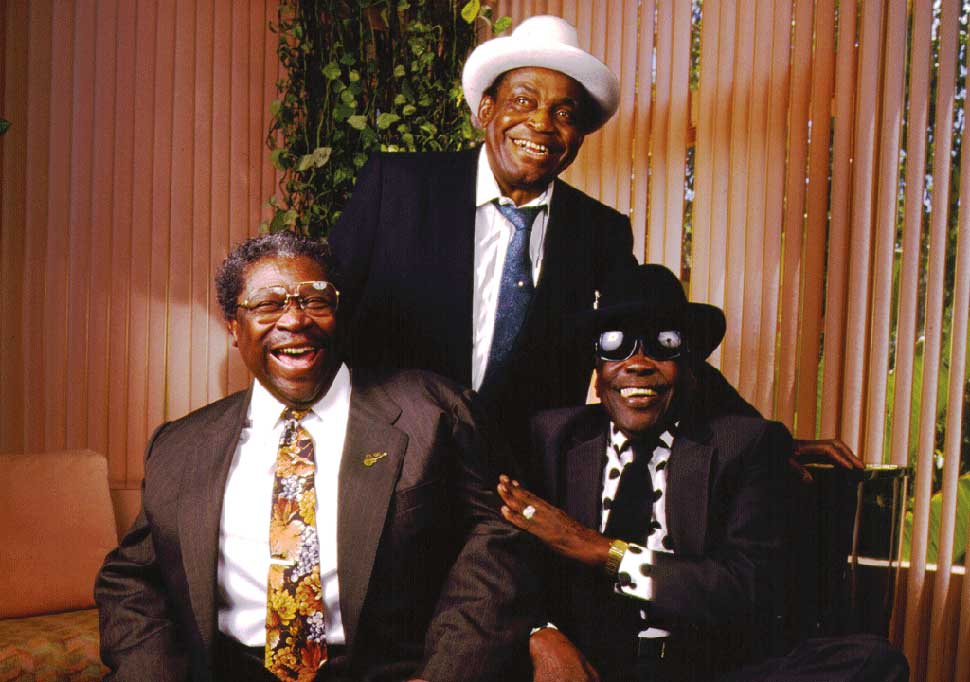
Robert Plant later commented on the whole sorry affair in an interview with the now defunct Musician magazine: “Page’s riff was Page’s riff. It was there before anything else. I just thought, well, what am I going to sing? That was it, a nick. Now happily paid for. At the time, there was a lot of conversation about what to do. It was decided that it was so far away in time and influence that… well, you only get caught when you’re successful. That’s the game.”
“My daughter first brought Whole Lotta Love to my attention,” said Dixon in I Am The Blues. “She was all raging about it and that’s what really turned me on to it. I wasn’t sure I was going to have any justice pertaining to it. We made a deal where I was satisfied and that was a very great thing as far as I was concerned, because I really wasn’t expecting very much.”
Dixon had also included the song Bring It On Home, a ’66 single for Sonny Boy Williamson – it was actually recorded in 1963 – in the lawsuit. Led Zeppelin recorded a song of the same name for their 1969 album Led Zeppelin II. Dixon pointed out the similarities between both songs and the fact that he’d been given no composers credit and the matter was again settled out of court.
Said Jimmy Page: “The thing with Bring It On Home, there’s only a tiny bit taken from Sonny Boy Williamson’s version and we threw that in as a tribute. People say, ‘oh Bring It On Home is stolen’. Well, there’s only a little bit in the song that relates to anything that had gone before it, just the end.”
Interestingly, the Small Faces were never sued by Dixon themselves, despite the fact that You Need Loving didn’t credit him as songwriter – and still doesn’t. Maybe he wasn’t aware of the cover version as the band had little success in the US. What we do know for sure is that his skirmishes in court had a big effect on Dixon. In his later years he set up the Blues Heaven Foundation (“when something is rightfully owed to someone they deserve to have it”), an organisation dedicated to helping musicians who’d been ripped off regain their copyrights and collect on misappropriated royalties.
“Most blues artists haven’t been able to get their rightful dues,” Dixon said. “They do the songs and lose ’em and get lost in the copyright and publishing. This is why so many youngsters today don’t really know about the blues until they hear about ’em from some other source. They hear ’em after they’ve been doctored and rearranged by somebody else. A lot of times, these other people get the biggest of the royalties and everything.”
It’s now 50-odd years down the road from that iconic Ready Steady Go! performance by The Rolling Stones, and Willie Dixon’s songs are the backbone of contemporary blues. The great man himself died of heart failure in Burbank, California on January 29, 1992. He never did become as recognisable as all those artists he helped to break through – Muddy Waters, Howlin’ Wolf, The Rolling Stones, Led Zeppelin, The Doors and the all rest – but everyone knows his songs.
Most recently, Irish R&B band The Strypes employed Dixon’s Bo Diddley classic You Can’t Judge A Book By The Cover as the starter motor of their career; Joe Bonamassa thumped his way through his take on Dixon’s Evil (Is Going On) on his recent live CD/DVD release Muddy Wolf At Red Rock.
“Back Door Man has been a part of The Doors and a part of our lives forever,” says Robbie Krieger. “It was one of the two songs that Ian [Astbury of The Cult] sang when we did VH1 Storytellers [in 2000]. That song and the blues as a whole was a big part of what The Doors did. I never considered us a straight blues band, but it certainly influenced our own songwriting, whether it was the straighter blues things like Roadhouse Blues and LA Woman or Cars Hiss By My Window, which was based on an old Jimmy Reed song. That was why it was great to finally get to meet Willie Dixon. He’s still probably the greatest blues songwriter there’s ever been.”
Krieger eventually crossed paths with Willie Dixon about five years before the great bluesman died. “I got this call from his daughter out of the blue,” he recalls. “She was doing his business, and she told me he’d like to meet me and asked me to come over and to bring my guitar. I went over to this nice little house in the valley, and out comes Willie Dixon – this huge man. He was bigger than even Albert King. He must have weighed about 280 pounds, with these huge hands. He thanked me for putting his song [Back Door Man] on our album, and we talked for a while, and then he said, ‘Why don’t we write something?’ I played guitar and he played the drums – but on his stomach. Just pounding away. It was just a little jam that we had together. I still have a recording of it on a cassette somewhere.”
When Willie Dixon finished writing his autobiography in the late 80s, he came up with the simple but extremely effective title I Am The Blues. While it might have seemed like a piece of braggadocio worthy of his greatest work for Muddy Waters – I’m Your Hoochie Coochie Man – who could honestly deny him such a well-deserved title?
The highly recommended I Am The Blues: The Willie Dixon Story by Willie Dixon with Don Snowden is published by Da Capo Press.
